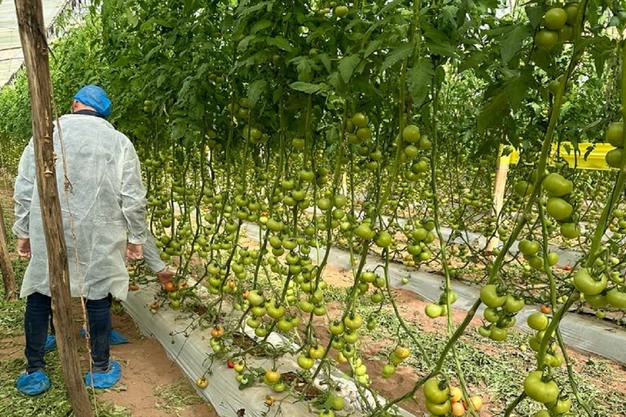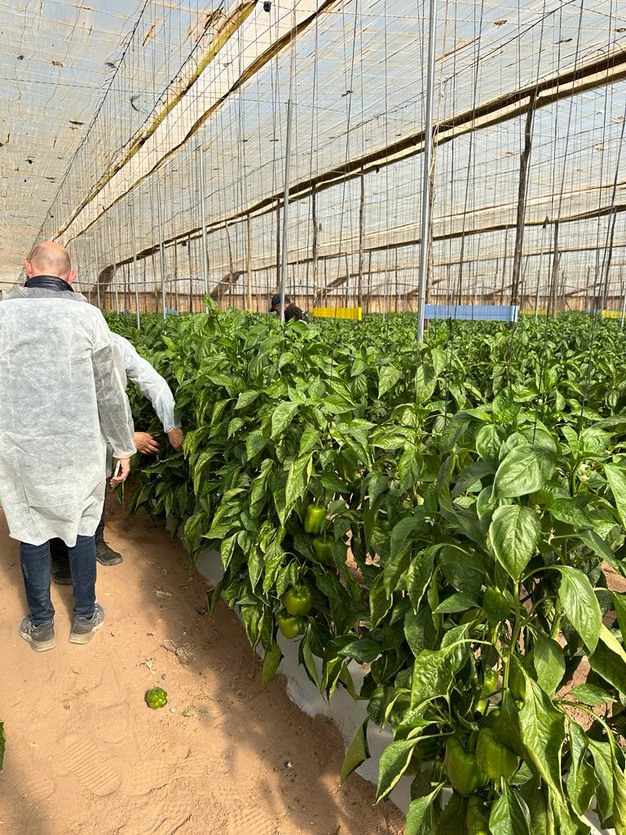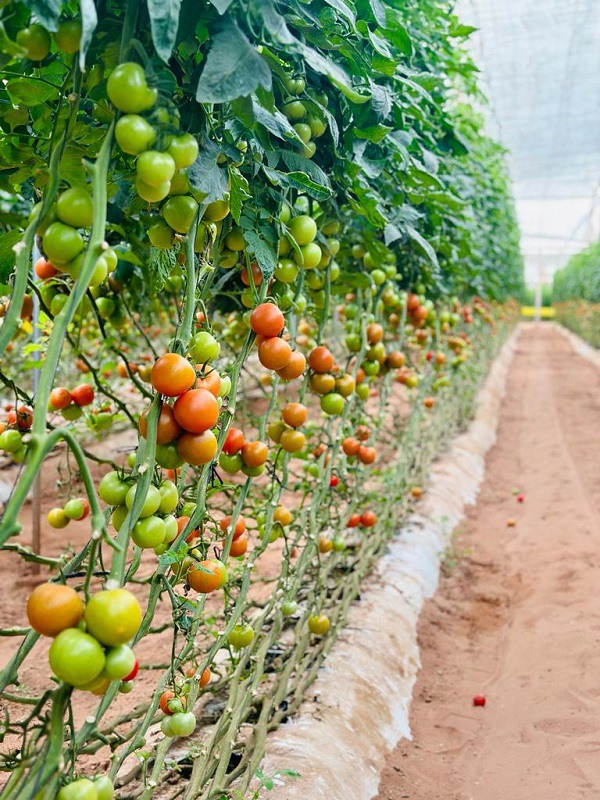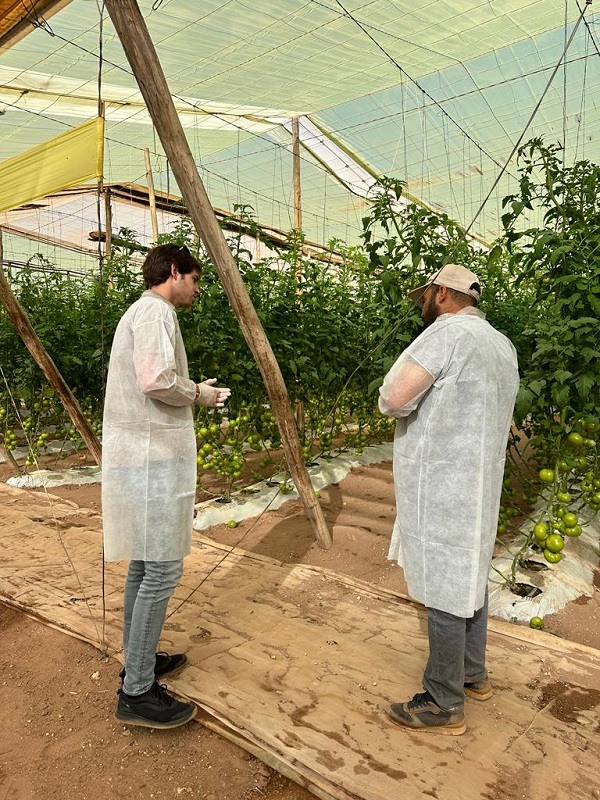A tomato specialist since 1940, the Safagri cooperative produces almost 50,000 tons of fruit and vegetables per year on more than 200 hectares in the Souss Massa region of southern Morocco. Its main markets are Spain, France, Portugal and England. Kamal Abannar, the company's sales manager, describes the "usual" situation facing the Moroccan round tomato sector, now impacted by the ToBRFV virus (tomato brown rugose fruit virus) and its consequences.

"From 28 to less than 12 trucks per week" "It is the first time that the ToBRFV virus has had a real impact on tomato production. The virus affected a few farms in Morocco last year, but we were already at the end of the season. This year, the virus has been present since the start of the season, and it has caused major losses for our producers," explains Kamal Abannar. "As a result, we cannot meet all our clients' needs. We usually export up to 4 trucks per day, but we are now down to less than 2!"
"It is the first time that the ToBRFV virus has had a real impact on tomato production. The virus affected a few farms in Morocco last year, but we were already at the end of the season. This year, the virus has been present since the start of the season, and it has caused major losses for our producers," explains Kamal Abannar. "As a result, we cannot meet all our clients' needs. We usually export up to 4 trucks per day, but we are now down to less than 2!"
Last month, the Moroccan Interprofessional Federation of Fruit and Vegetable Production and Exports (FIFEL) warned in a press release about the "future of the round tomato sector in Morocco." In addition to record temperatures, "the plantations have been severely affected by the new ToBRFV virus, disrupting normal plant growth and leading to a 20-30% drop in production." Prices are also rising, up to 50%. Last year at the same time, a round tomato could be sold on the market for 60 euro cents [0.66 USD], compared to 1.20 euros [1.32 USD] today," according to Kamal. These prices cannot cover the losses and additional costs incurred in production.
 Safagri also produces peppers, beans, zucchinis, melons, and watermelons.
Safagri also produces peppers, beans, zucchinis, melons, and watermelons.
Producers in search of solutions Producers are currently at a loss. "We do not have any solution for this virus, so we are trying to save as much of the harvest as possible." Cleaning, disinfecting, analyzing... a whole sanitary protocol has to be put in place, and production costs keep rising. "We have to take a lot of measures to stop the spread of the virus and train farm workers in preventive measures."
Producers are currently at a loss. "We do not have any solution for this virus, so we are trying to save as much of the harvest as possible." Cleaning, disinfecting, analyzing... a whole sanitary protocol has to be put in place, and production costs keep rising. "We have to take a lot of measures to stop the spread of the virus and train farm workers in preventive measures."
The situation has forced many growers to look for alternatives, which could change the landscape for good. "Many producers have been forced to uproot their entire production and replant with peppers. If the situation persists, some growers may have to turn to more profitable crops such as cherry tomatoes, blueberries, or raspberries."
For more information:
Coopérative agricole Safagri
Province de Chtouka Ait Baha, Maroc
safagri.com
Safagri import export
Kamal Abannar
280 Rue James Watt, Zae Tecnosud,
66100 Perpignan, France
Tel.: +33 (0) 7 83 69 63 87
[email protected]










